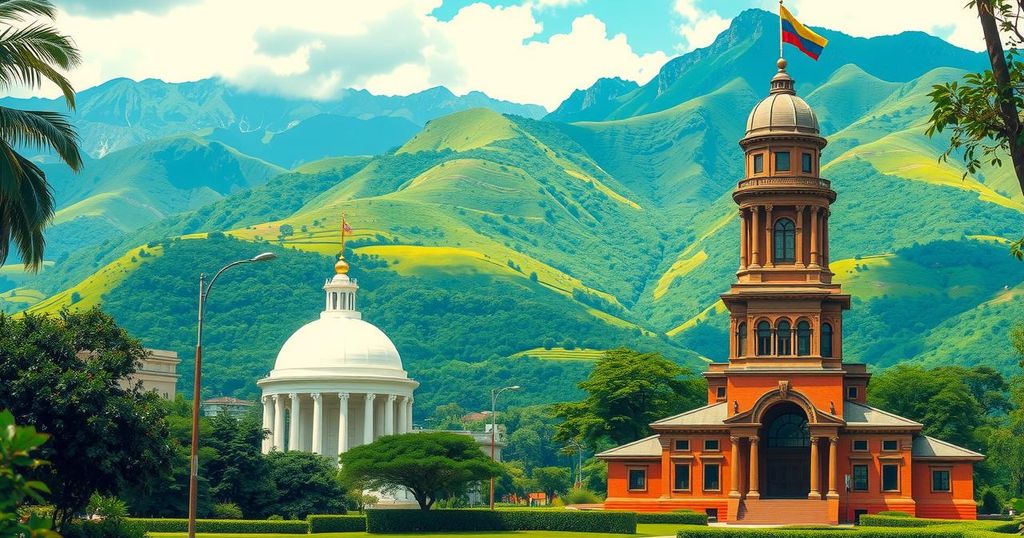Ecuador’s presidential runoff on April 13 features incumbent Daniel Noboa against former Assemblywoman Luisa González. Both candidates received around 44 percent in the first round, with Indigenous candidate Leonidas Iza holding 5 percent. Their parties lack a majority in the National Assembly, necessitating alliances to advance legislative agendas. Key issues include security and economic growth, with significant implications for the nation’s future.
In Ecuador’s upcoming presidential runoff on April 13, voters will choose between incumbent Daniel Noboa and former Assemblywoman Luisa González, amidst ongoing security and economic challenges. Initial predictions for a decisive first-round victory for Noboa proved inaccurate; both candidates secured approximately 44 percent of the votes, with Noboa winning by a narrow margin of 19,800 votes out of 13.8 million votes cast. Indigenous candidate Leonidas Iza garnered 5 percent of the vote, totaling around 538,000 votes, positioning him as a potential kingmaker despite ruling out any endorsement negotiations.
The next president will confront a National Assembly divided between their respective parties, as both Noboa’s National Democratic Action (ADN) and González’s Citizen Revolution party failed to achieve a majority in the legislative elections held on the same day. González’s party secured 67 seats while Noboa’s obtained 66, highlighting the necessity for both candidates to ally with smaller parties, particularly Iza’s Pachakutik, which won 9 seats, to pass legislation effectively.
The candidates’ policies will focus on pivotal issues such as security, employment, and energy supply, essential concerns for voters in this election cycle. Security expert Vanda Felbab-Brown from Brookings emphasizes the challenges Noboa faces, particularly regarding his hardline approach to security inspired by Bukele. The economic landscape projects steady growth for the region in 2025, setting the stage for a critical election that could alter Ecuador’s political trajectory significantly.
The upcoming presidential runoff in Ecuador highlights a critical juncture for the nation, where voters will choose between continuity under Daniel Noboa or a shift towards the policies embodied by Luisa González. With both candidates having garnered nearly equal support in the first round, the influence of third-party candidates, particularly Leonidas Iza, is crucial for legislative success. Given the pressing issues of security and economic growth, the outcome of this election will likely shape Ecuador’s future resilience and governance.
Original Source: www.as-coa.org






